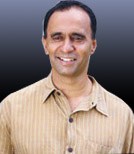Hematological Malignancies Meeting: scientists and clinicians combine forces
When writing a grant proposal, scientists often promote the potential of the research to improve the quality of life of the common man. And when a proposal is focused on cancer treatment, claims of some broad social benefit are generally well-received, with cancer sadly being an increasingly common part of our unhealthy lifestyles. But do we as researchers actually understand the problems that clinicians face when they begin to treat a cancer patient or even when they need to diagnose a suspected case of cancer? If we do not understand the decision-making process of the clinician, our laboratory experiments may be uninformed and misdirected. And conversely, unless clinicians are aware of ongoing research efforts and ideas, their treatment regimens will not conform to "best possible practice".
To improve the success rate of treating cancer patients, it is imperative that we bridge the gap between the research lab and the clinic. With this in mind the ‘Hematological malignancies: a basic science and clinical initiative’ meeting was held in Bangalore, in early August 2010. It was organised by Prof. Sudhir Krishna, NCBS-TIFR, Prof. Cecil Ross, St. John's Medical College and Hospital, and Prof. Seema Nanda, TIFR-CAM, Bangalore. This novel initiative was supported by TIFR-ICTS and the same team of individuals and institutes is also organizing a year-long lecture program to bring clinicians and researchers onto the same page. Details can be found on this website.
The clinicians highlighted emerging methods of treating hematological malignancies, factors to be considered in personalizing treatments, improvements in techniques and the problems faced e.g., relapse and drug resistance. The basic researchers spoke about their efforts to identify and understand the causes underlying hematological malignancies and efforts at identifying novel drugs and drug targets.
Some important themes emerged from these interactions:1. It is difficult for a single person to perform satisfactorily as a medical doctor as well as a basic researcher. Hence collaborations between clinicians and researchers are the way forward. Collaborations are not limited to only making biopsy samples available and exchanging results, but an active interest in framing and testing hypothesis on the basis of available patient samples.
2. Population level data on HLA typing, malignancy markers and such other statistics are not available as a unified database, adversely affecting both treatment and research.
3. Cancer diagnosis needs to accept and use modern diagnostic techniques on a larger scale, to improve prognosis.
4. The target is everything. It is important to identify proximal causes of malignancies and design drugs to hit them. Multi-drug therapy affecting different proteins may prove more efficient when treating malignancies that have acquired drug resistant mutations, cases of relapse and as a preventive measure against the development of drug resistance.
The meeting was attended by medical practitioners and researchers from all over India and a few biomedical researchers from the US and Europe as well.

Comments
And the bags were awesome! :)
Post new comment